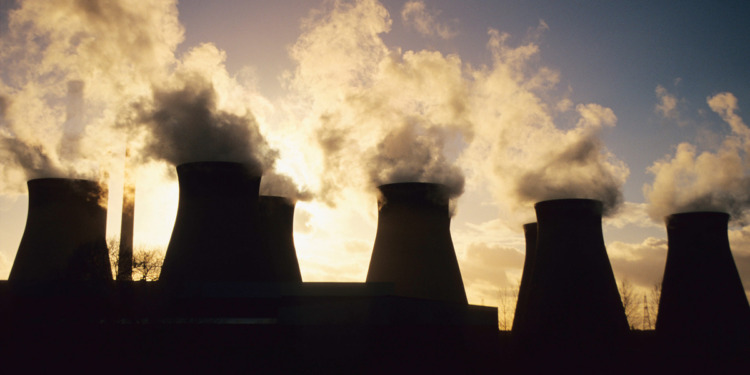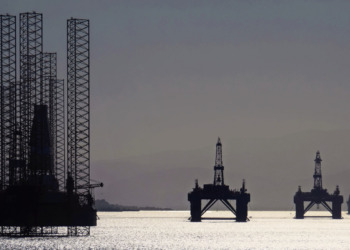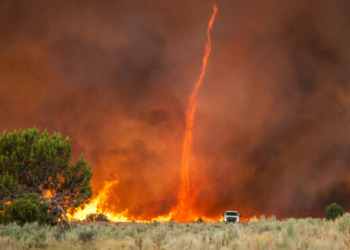After a marathon final two days of talks, countries have approved a new climate science report from the UN’s Intergovernmental Panel on Climate Change (IPCC). The report brings together current scientific research, with leading scientists and governments agreeing on a summary that lays bare the devastating reality and risks posed by the climate crisis, and the ways in which the world must respond.
#IPCC Synthesis Report is now available via the report microsite at https://t.co/sp4Sk0Xbxl#ClimateChange #AR6
— IPCC (@IPCC_CH) March 20, 2023
The IPCC’s Sixth Assessment Synthesis Report (AR6) spotlights the rapid emission reductions needed to meet intermediate climate targets — reducing greenhouse gas emissions by 43% by 2030 and 60% by 2035 to reach net-zero by mid-century and avoid global temperatures exceeding the dangerous 1.5°C tipping point.
“This report represents the most comprehensive collection of climate science since the last assessment came out almost a decade ago. Weaving together the findings from the multi-thousand page reports published over the last few years, it very clearly lays out the devastating impacts climate change is already having on our lives and ecosystems all around the world, the harsh future we all face if we don’t get our act together, and the solutions we can implement now to reduce emissions and adapt to climate change,” said Dr Stephanie Roe, WWF Global Lead Scientist Climate and Energy, and Lead Author on the IPCC Working Group III report.
The report recognises however, that current policies are off track to meet these targets, despite the range of cost-effective solutions available. Countries are expected to assess their progress toward achieving these targets in the global stocktake at the UN climate summit COP28 later this year.
“Some countries are already achieving sustained emissions reductions, but action is not yet at the scale or speed we need. With current emissions still at their highest level in human history, we are way off course, and the window to limit warming to 1.5ºC is rapidly closing. The sooner and more decisively we act, the sooner people and nature can reap the benefits of a cleaner, safer and more stable future. We have all the tools we need, so it’s well within our power to meet this challenge if we act now,” Dr Stephanie Roe added.
Related Articles: Why UN Climate Science Must Keep Shaping Global Climate Policy | Landmark High Seas Treaty Agreed, Ushering in New Rules for Two-Thirds of the Ocean | WWF Launches Bid to Amass 7 Years’ Worth of Pledges to Create the Biggest Hour for Earth
WWF urges governments to heed the report’s warnings and act quickly to implement its recommendations to limit the impacts of the climate crisis. It calls on leaders to rapidly slash emissions across all sectors, boost efforts to build resilience to extreme weather events and protect and restore nature. An accelerated phase-out of fossil fuels is the best way to avoid the planet overshooting 1.5°C and risking total climate catastrophe.
“We have never been better equipped to solve the climate challenge – but we must move into warp speed #ClimateAction now.
We don’t have a moment to lose.”
– @antonioguterres on latest @IPCC_CH report. https://t.co/q1DpjemK49 pic.twitter.com/5WsFm4ieWA
— United Nations (@UN) March 20, 2023
IPCC reports are influential as they are used by policymakers and governments to inform their actions, shape UN climate change negotiations, and affect public opinion. The IPCC AR6 Synthesis Report Summary for Policymakers was discussed line-by-line by governments at the week-long approval session in Switzerland, which started on March 13 and was agreed to on March 19.
WWF welcomes this latest IPCC report, and notes that it highlights:
-
that many low-cost solutions already exist for the necessary economy-wide transformation [C.3]
-
the cost of renewables like wind and solar has dropped by up to 85% over the past decade [A.4.2]
-
the importance of nature and conservation – including the need to conserve 30% to 50% of Earth’s land, freshwater and ocean to maintain the resilience of biodiversity and ecosystem services at a global scale [C.3.6]
-
the urgency of action this decade, as well as by 2035 – the date that links in to the next round of nationally determined contributions under the Paris Agreement [B.6.1]
“The evidence is crystal clear, the science is unequivocal — it’s just the lack of political will that’s holding us back from the bold action that’s necessary to avert a climate catastrophe. Leaders who ignore the science of climate change are failing their people. A rapid phase-out of fossil fuels is essential, as is protecting and restoring natural ecosystems,” WWF Global Deputy Lead Climate and Energy Dr Stephen Cornelius said, adding:
“Nature is our secret ally in the fight against climate change. Natural systems have absorbed 54% of human-related carbon dioxide emissions over the past decade and have slowed global warming and helped protect humanity from much more severe climate change risks. We can’t hope to limit warming to 1.5°C, adapt to climate change and save lives and livelihoods, unless we also act urgently to safeguard and restore nature. Nature is a non-negotiable part of the solution to the climate crisis.”
Editor’s Note: The opinions expressed here by the authors are their own, not those of Impakter.com — In the Featured Photo: Cooling towers letting out steam and smoke at a coal-fired power station near Pontefract in Yorkshire, UK. Featured Photo Credit: © Edward Parker / WWF.










